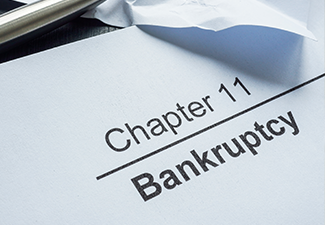Essential Steps for Asset Protection Before Filing Chapter 11
Feb. 5, 2025
 If you're a business owner considering filing for Chapter 11 bankruptcy, safeguarding your assets should be high on your priority list.
If you're a business owner considering filing for Chapter 11 bankruptcy, safeguarding your assets should be high on your priority list.
Filing for Chapter 11 allows you to restructure your business and create a plan to repay creditors while staying operational. However, going through this process without proper preparation can put your assets at risk and jeopardize the success of your case.
At Vivona Pandurangi, PLC, we understand the challenges Chapter 11 bankruptcy presents. Our Virginia-based team proudly serves Falls Church, Alexandria, Arlington, Fairfax, Manassas, Prince William, and Loudon.
We strive to protect clients’ interests with strategic legal counsel and simplifying complicated matters. Whether you're a small business owner or managing a larger enterprise, experienced legal representation during Chapter 11 proceedings can help you secure a favorable outcome.
Let's look at some essential steps for protecting your assets before filing for Chapter 11 bankruptcy.
Bankruptcy Laws in Virginia
Virginia has several laws governing bankruptcy proceedings; understanding them can significantly impact your asset protection strategy.
Automatic Stay Provisions
Virginia adheres to federal automatic stay laws, which halt creditor collection actions immediately after filing bankruptcy. However, creditors can petition the court to lift this stay under certain circumstances, leaving some assets vulnerable.
Homestead Exemption
Virginia offers a modest homestead exemption that lets you protect up to $5,000 of equity in a primary residence—plus an additional $500 for each dependent. Married couples filing jointly can double this amount.
Fraudulent Transfers
Virginia prohibits the transfer of assets to friends or family to shield them from creditors right before filing for bankruptcy. These transfers could be deemed fraudulent, and courts can reverse such actions.
How to Protect Your Assets Before Filing Chapter 11
Here are some legal strategies to safeguard your assets while complying with bankruptcy laws.
1. Understand What Chapter 11 Means for Your Business
Before you file, review precisely what Chapter 11 bankruptcy entails. Chapter 11 is primarily aimed at businesses looking to reorganize and continue operations while paying off debts over time. Unlike other bankruptcy options, it allows owners to retain control of the business as a debtor-in-possession.
2. Conduct a Thorough Inventory of Your Assets
Create a detailed list of your business and personal assets. Knowing what you own—and their value—can help you determine which assets are essential for daily operations and which may require additional protection. Be honest during this step, as detailed records are critical for legal compliance and transparency in court.
3. Separate Personal and Business Finances
Now is the time to separate your personal assets from your business finances if you haven't already. Commingling funds can complicate your bankruptcy case and leave your personal property exposed to creditors. Establish clear boundaries between your personal and business transactions to maintain a clean financial trail.
4. Assess and Maximize Legal Exemptions
Virginia has several exemptions that allow businesses and individuals to protect specific property during bankruptcy proceedings. Work with your attorney to determine which exemptions apply to your situation. For instance, you may have tools or equipment critical to running your business that must be protected.
5. Review Financial Transactions
Review all financial transactions leading up to your bankruptcy filing. Avoid making major purchases, transferring assets, or taking on new debt, as these actions could draw scrutiny from creditors and the court. Any questionable transactions might be reversed if deemed improper.
6. Protect Key Operational Assets
Identify business equipment, tools, and property that are essential for your operations. These "tools of the trade" are often protected under exemption laws—but you must provide supporting documentation to justify their necessity.
7. Hire a Skilled Attorney
Protecting your assets before filing for Chapter 11 is a multi-faceted process; partnering with an experienced bankruptcy attorney can make all the difference. They can provide tailored legal guidance to protect your interests and help you develop a strategy to protect your assets while complying with bankruptcy regulations.
8. Consider Establishing Trusts
Irrevocable trusts can effectively protect certain assets from creditors. By transferring ownership of specific assets to a trust well before filing for Chapter 11, you can safeguard them legally. However, this must be done carefully, considering timing and regulations to avoid complications or accusations of fraudulent transfers.
9. Consolidate Debts Strategically
Strategically consolidating debts can help reduce financial strain and organize your liabilities before filing for Chapter 11. This process can streamline your financial obligations, making them more manageable while demonstrating good faith in resolving outstanding debts. Consult financial and legal professionals to identify the best approach for your circumstances.
Bankruptcy Attorneys in Falls Church and Alexandria
At Vivona Pandurangi, PLC, we make quality legal assistance more accessible to our clients. We try to simplify legal matters by helping you avoid unnecessary procedural hurdles and expenses wherever possible.
Our attorneys zealously advocate for your rights, always prioritizing effective outcomes. We approach every case with determination and focus, helping our clients protect what truly matters. Contact us today to take the first step in protecting your assets during Chapter 11 proceedings.
